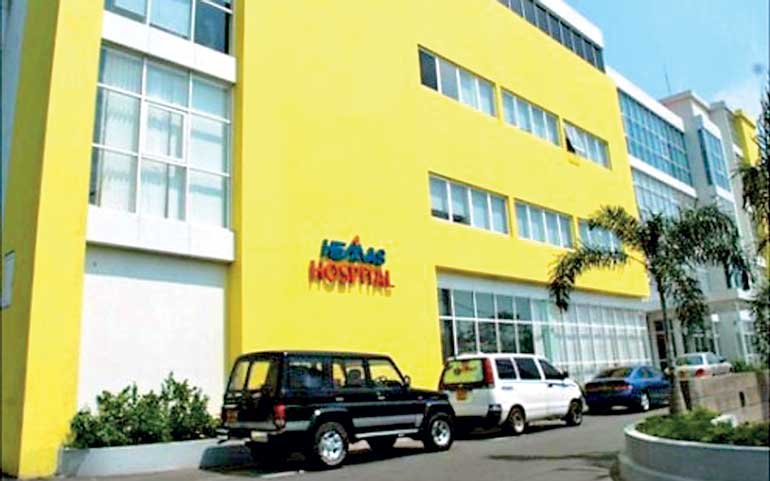Tuesday Feb 24, 2026
Tuesday Feb 24, 2026
Tuesday, 12 September 2017 00:00 - - {{hitsCtrl.values.hits}}

Among the 2,000 plus dengue patients treated at Hemas Hospital Wattala in the past three months, several critical cases were high risk pregnancies that got even more complex as the patients advanced in their pregnancies having contracted the dengue virus. One such case was of a pregnant female who had abandoned the idea that she would one day become a mother. Her past health history of three miscarriages, pregnancy induced hypertension and diabetes, hypo thyroidism plus a rare blood disorder called ‘Factor Eight’, contributed to her being warned medically that the likelihood of her ever carrying a baby to term – was slim. At 35 years of age, considered ‘elderly primal’ was not in her favour, however desperate she was to have a child. So when she discovered she was pregnant for the fourth time, she was anxious that this should be a viable pregnancy.
Dr. Indra Wadinambiarachchi at the Out Patient’s Department (OPD) at Hemas Hospitals, immediately suspected dengue and prescribed the dengue antigen test, on a routine visit of another patient who at 36 weeks pregnancy complained of a mild sore throat and fever. She was surprised when diagnosed as having dengue, particularly since a test done a few days prior at a neighbourhood laboratory had told her otherwise.
Both pregnancies, considered very high-risk, highly complicated and very rare, became the responsibility of the team of medical and healthcare specialists at Hemas Hospital in Wattala. Dengue plus at the advanced stage of eight months of pregnancy and a pregnant woman with acute blood disorder plus other complications who had contracted dengue, was the challenge that the team had to manage – the health of the mother and her baby.
As the mothers recovered from their delivery, Dr. Rasika Herath, Consultant Gynaecologist discussed how serious their conditions were. All necessary investigations were carried out without any delays, with Consultant Haematologist, Dr. Visakha Ratnamalala also part of the team that supervised the delivery. “From the ward doctor to the Consultants – Gynae, Haematology, Paediatric were present at the times of delivery, given that one patient had a legacy of acute blood disorder and the other having a low platelet count, high pulse rate and fluid leakage caused by acute Dengi. Both situations were near fatal.
Dr. Sunil Fernando, Consultant Obstetrician and Gynaecologist also worked tirelessly and meticulously in planning the care of a number of pregnant women who were diagnosed with dengue, over the past few months.
“Our experienced team of maternal-foetal healthcare specialists, in collaboration and with direction from the consultants, ensured safe and effective perinatal and post natal care,” explained Dr. Upul Ilangasinghe, Manager, Medical Services at Hemas Hospital, Wattala.
“Often, patients are simply monitored more carefully while their pregnancy proceeds normally,” he continued. “However, in these two critical cases and in most times, our team was able to quickly diagnose, prescribe the specific tests, treatments and courses of action and developed an effective care plan that suited the mother’s specific needs, and offered the best chance of a successful outcome.”
Dr. Ilangasinghe concluded that timely diagnosis is an attribute of experience which is the key driver to the successes at Hemas Hospitals. “From the OPD to the Ward doctors, the respective consultants, from the pool of over 200 consultants that see patients at Hemas Hospitals, to the teams of nurses, paramedics and all hospital staff, stay committed to the most successful healthcare practices and outcomes,” he summed up.
Dr. Lasantha Karunasekara, Director/General Manger of Hemas Wattala stated, “This amply demonstrates the commitment, dedication, skill and passion of the entire hospital team, from consultants down, towards the patients visiting Hemas hospitals. Managing high risk patients across all specialties with great outcomes have become a routine to our staff now. As the only hospitals in the region with international accreditation following stringent patient centric processes, including a world standard central supply sterilising unit, contributing to almost zero infection rates to surgery, has all contributed to the our success journey.”